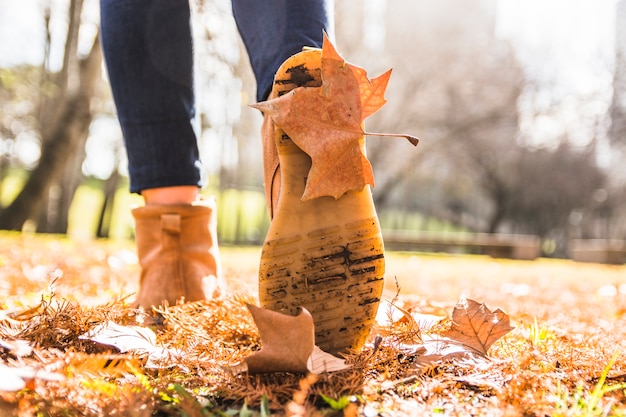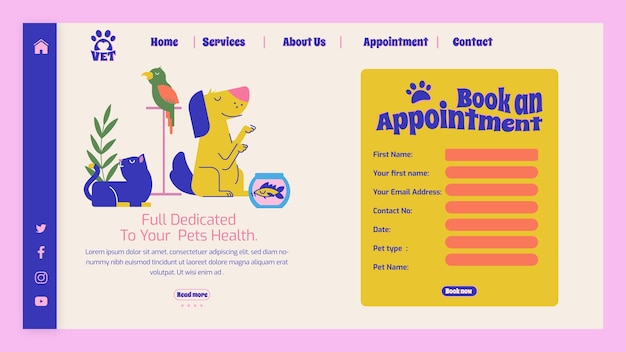Fall Activity Safety Tips for Dogs in Northlake, TX


Fall Activity Safety Tips for Dogs in Northlake, TX
As the vibrant colors of fall arrive in Northlake, TX, many dog owners eagerly anticipate outdoor adventures with their canine companions. The crisp October air and scenic trails invite longer walks, playful visits to local parks, and family outings in the cooler weather. While fall brings plenty of opportunities for bonding and exercise, it also introduces a unique set of outdoor pet hazards that every dog owner should keep in mind. At Canyon Falls Veterinary Hospital, located at 7251 Canyon Falls Dr, Suite 201, Northlake, TX 76226, our veterinary team is dedicated to helping you enjoy the season safely with your pet.
In this guide, we’ll share essential fall pet safety tips for Northlake and surrounding communities. You’ll learn how to identify potential risks such as ticks, toxic plants, and seasonal allergens, discover best practices for prevention, and know when to seek veterinary care. If you’re looking for comprehensive veterinary services in Northlake, our team offers everything from wellness exams to pet vaccinations and advanced diagnostic care. Schedule an appointment this fall to make sure your dog is protected, healthy, and ready for adventure.
Recognizing Fall Hazards: What to Watch for When Outdoors
With the change in seasons, new outdoor pet hazards emerge that can impact your dog’s health and comfort. Being aware of these challenges is the first step in keeping your pet safe. During autumn in Northlake, some of the most common risks include increased tick activity, exposure to mushrooms and fallen nuts, changes in daylight, and unpredictable weather patterns.
Key symptoms of trouble might include sudden itching or scratching, limping after a hike, gastrointestinal upset, or lethargy following outdoor play. Additional warning signs are sneezing, coughing, or watery eyes, which may signal allergies or respiratory issues linked to mold and decaying leaves. If your dog is exploring wooded areas or tall grass, be vigilant for attached ticks or signs of tick-borne illness such as fever, swollen joints, or loss of appetite.
Many pet owners notice their dogs are more likely to ingest unfamiliar plants, acorns, or mushrooms during walks in the fall. Toxic ingestion can lead to symptoms like vomiting, diarrhea, drooling, or even seizures in more severe cases. As daylight hours change, dogs may also become disoriented in low light, increasing the risk of accidents or escape.
By understanding these common fall hazards and observing your dog for changes in behavior or health, you can react quickly and safeguard their wellbeing during this beautiful season.
Why Do Fall Pet Hazards Increase in Northlake, TX?
Autumn in Northlake and neighboring areas brings cooler weather and frequent rainfall, creating ideal conditions for certain outdoor threats. Ticks remain active well into October and sometimes even November, hiding in tall grass or leaf litter in local parks and nature trails. The region’s oak trees drop acorns, which can be tempting for curious dogs but pose choking risks and contain toxins that may upset your pet’s digestive system.
Seasonal mushrooms flourish in damp soil, especially after rain, and many varieties are toxic if ingested. Additionally, mold thrives on fallen leaves and decaying organic matter, contributing to respiratory allergies in both pets and people. The shift to shorter daylight hours can also throw off your dog’s internal clock, leading to changes in routine or increased anxiety during evening walks.
Local wildlife, such as snakes and insects, may be more active as they prepare for winter, bringing additional risks for curious dogs exploring new scents. All these factors make it especially important to be proactive about outdoor pet hazards in Northlake each fall.
Treatment and Management: How Canyon Falls Veterinary Hospital Can Help
If your dog is affected by a fall-related hazard, prompt veterinary attention is critical. Our veterinary professionals at Canyon Falls Veterinary Hospital are equipped with advanced diagnostic tools and a compassionate approach to care. For suspected tick bites or tick-borne illnesses, our team can perform in-house diagnostic tests to confirm infection and recommend appropriate treatment, which might involve antibiotics or supportive care depending on the severity.
In cases of toxic plant or mushroom ingestion, the first priority is stabilizing your pet. Treatment approaches involve inducing vomiting if the ingestion was recent, administering activated charcoal to limit toxin absorption, and providing intravenous fluids to flush the system as needed. Our veterinarians will tailor their management to the specific toxin involved and your pet’s unique needs.
Respiratory symptoms or allergic reactions may require antihistamines, corticosteroids, or other medications to relieve discomfort and reduce inflammation. If your dog suffers an injury during a fall outing, such as a sprain or laceration, our team offers digital radiology, wound care, and pain management to support a swift recovery.
For ongoing seasonal issues or changes in behavior linked to fall routines, we also provide behavior consultations to help your dog adjust comfortably. Our goal is to ensure your pet’s safety and wellbeing through comprehensive veterinary services in Northlake, whether you’re facing acute hazards or simply want peace of mind for your fall adventures.
Preventing Fall Hazards: Home and Outdoor Safety Strategies
The best way to protect your dog from outdoor pet hazards in Northlake is through proactive prevention and daily awareness. Begin by ensuring your pet is up to date on parasite prevention, as tick and flea medications are essential even during cooler months. Regularly inspect your dog’s coat, ears, and paws after walks, especially if you’ve visited wooded trails or grassy fields.
When exploring new areas, keep your dog on a leash and discourage them from eating unknown plants, mushrooms, or nuts. Training your dog to “leave it” can be an invaluable skill for avoiding toxic ingestion. Maintaining a clean yard by promptly removing fallen leaves, acorns, and debris reduces the chance of exposure to mold and toxins.
Consider scheduling a wellness examination each fall to catch potential issues early and discuss seasonal risks with our veterinarians. This is also an excellent time to review your pet’s vaccination status, as respiratory diseases can be more prevalent in the fall with increased outdoor activity.
Adjust your routine to accommodate shorter days by walking your dog during daylight hours whenever possible. If you must walk in the early morning or evening, use reflective gear for both you and your pet to increase visibility and reduce the risk of accidents. Keeping your dog hydrated and avoiding strenuous exercise during surprisingly warm fall days helps prevent heat stress, which can still occur in Texas autumns.
Finally, provide a safe, comfortable space indoors for your dog to rest after outdoor adventures. Monitoring your dog’s health and behavior during the season allows you to spot concerns early and seek help if needed.
When to Seek Veterinary Care for Fall Hazards
Knowing when to contact your veterinarian can make all the difference in your dog’s outcome if they encounter an outdoor hazard. Immediate veterinary attention is crucial if your dog shows signs of severe allergic reaction, such as facial swelling, difficulty breathing, or collapse. Sudden onset of vomiting, diarrhea, or seizures after ingesting a mushroom or plant should also prompt an urgent visit.
If you find a tick attached to your dog and are unsure how long it has been there, or if your pet develops symptoms such as fever, lameness, persistent lethargy, or swollen joints, professional evaluation is recommended. Minor scrapes or mild allergic reactions can sometimes be managed at home, but if symptoms worsen or do not improve within twenty-four hours, it’s time for a veterinary assessment.
For behavioral changes, such as increased anxiety or aggression during walks, our veterinary team can provide behavior consultations to support a safe and enjoyable season. Remember, your veterinarian is your partner in maintaining your dog’s health and wellbeing throughout the year.
Keeping Your Dog Safe This Fall: Trust Your Local Vet Near Me
Fall in Northlake offers countless opportunities for you and your dog to enjoy the outdoors together, but it’s important to stay vigilant about the unique seasonal risks. By recognizing potential hazards, taking preventive steps, and knowing when to seek veterinary care, you can ensure your pet stays happy and healthy all season long.
At Canyon Falls Veterinary Hospital, our team of veterinarians is committed to providing the highest quality veterinary services in Northlake and surrounding communities. Whether you’re due for a checkup, need advice about fall pet safety tips, or want support with outdoor pet hazards, we’re here to help. Schedule a wellness visit or update your pet vaccinations to keep your dog protected throughout the season.
Connect with us today by calling (972) 559-9500 or visiting our Northlake location. We look forward to partnering with you for all your pet’s needs this fall and beyond. If you’re searching for a vet near me who understands the importance of seasonal care, you’ll find a trusted home at Canyon Falls Veterinary Hospital.
The advice in this blog is intended for educational purposes only and does not replace personalized veterinary care. If you have concerns about your dog’s health, please contact our veterinary professionals for specific guidance or to schedule an appointment.





















